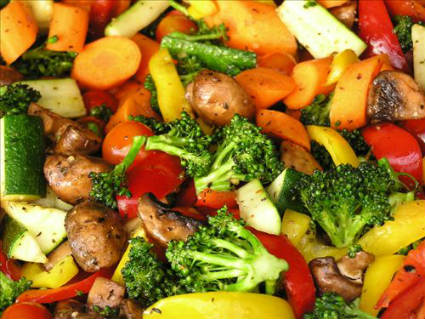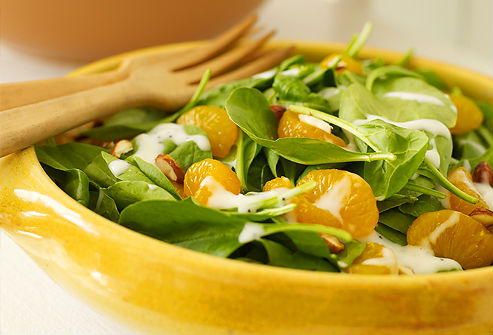Do Vegans and Vegetarians Get Enough Iron?
The older a person is at the time of conversion, the more likely they are to have problems with non-heme iron; however, there’s relatively inexpensive supplements that make converting to veganism practically risk free. I’d appreciate your opinions on the subject. Thanks.
A concern over iron intake is a topic that’s frequently brought up in the discourse about the merits of a plant based diet.
Don’s concern over iron absorption later in life is a unique wrinkle on the subject that isn’t frequently brought up.
Let’s take a look at this subject in depth.
Heme vs. Non-heme Iron
There are two types of iron you can ingest from your diet:
- heme iron
- non-heme iron
Heme iron is the better kind. It has a higher level of bio-availibility, and its digestion is less sensitive to other dietary factors. The iron from plants is exclusively non-heme, while about 15%-40% of iron from animals is of the heme variety. The reason for its superiority is because it comes from heme proteins in animal blood, so its form is precisely attuned to what our own bodies need to use it for. Score one for animals.
Does this discredit plant based diets?
No, not quite.
Allow me to explain…..
Iron in Vegetarian Diets
Iron in plant foods is fairly common, but typically not found in the same density as meat. Additionally iron absorption is hindered by the following four compounds:
- phytates (chemical typically found in nuts and grains)
- phenolic acids (very healthy, but does decrease iron absorption)
- tannins (compounds typically found in coffee, tea, and wine)
- calcium (this is why dairy is a poor source of iron)
The latter four substances are commonly found in plant foods, which is problematic. However, plant foods have one saving grace: vitamin C.
Vitamin C greatly enhances the absorbability of iron, and it’s abundant in plant foods. And in many cases a little bit of vitamin C will undo the harmful effects of phytates, phenolic acids, tannins, and calcium on iron absorption.
And because practically all plant foods contain some iron and a lot of vitamin C, vegetarian/vegan diets that are well planned typically do provide enough iron over the long run.
Long-Term Studies on Vegetarians and Iron Intake
The overall picture from nutrition research is that vegetarian diets provide an adequate intake of iron if they’re well thought out but can run into problems if it consists mostly of ramen noodles and foods with a low nutritional density.
Vegetarians typically have lower stores of iron but adequate levels of serum iron. Even when they’re typically lower than omnivores, they’re usually within an acceptable range that’s necessary for normal functioning.
This can actually be quite beneficial, which I’ll discuss later on.
Dietary Iron for Elderly People
Don’s comment specifically referred to people who switch to vegan diets later in life, and whether or not the switch to non-heme iron should be a concern.
Does he have a point?
As far as I can tell, there are no significant differences for elderly/middle-aged people who follow vegetarian diets than the population at large.
The arc of available research tells a similar story for the two groups. Iron intake is adequate if followed well but can be troublesome if not.
However, it’s important to note that for people who are iron-deficient who follow vegan/vegetarian diets, it’s often because their diets are deficient in nutrients in general, and not necessarily because they’re vegan or vegetarian per se. And the typical vegetarian diet is more nutrient dense than an omnivorous one.
Getting Too Much Iron
Since this post is about iron intake among older vegetarians in particular, I’ll wrap up with an important point about the role excessive iron intake plays in aging.
Within your cell, a lot of iron metabolism is carried out by the mitochondria, and there’s quite a bit of evidence that the aging process and cell death is caused by excessive iron storage within the body.
The proper balance of iron within the cell is tightly regulated, and cellular iron pumps start to go awry later in life, which precipitates the formation of nasty nutrient-destroyers within the body, which speeds up the process of bodily decay.
For this reason lower stores of iron within the body but adequate levels within the bloodstream are likely beneficial for longevity.
Studies conducted on bacteria, fruit flies, and mice have all confirmed that inhibiting iron absorption is an important component of aging gracefully.
Lower caloric intake also helps the iron homeostasis problem in old age, and plant based diets are consistently better than omnivorous diets in this regard.
Conclusion
So overall, I don’t think the issue of iron intake should stop someone considering a vegan/vegetarian diet. But there is some danger.
There have been enough studies showing a higher prevalence of iron deficiency in vegan diets that it shouldn’t be discredited by people who advocate the diet. But if you focus on eating high quality foods you should be fine.
References:
Xu, Jinze, et. al. “Impaired Iron Status in Aging Research” Journal of Molecular Science. February 2012. Pgs 2368-2386.
URL: http://www.ncbi.nlm.nih.gov/pmc/articles/PMC3292028/?tool=pubmed
Xu, Jinze, et. al. “The Emerging Role of Iron Dyshomeostasis in the Mitochondrial Decay of Aging.” Mechanisms of Ageing and Development. April 2010. Pgs. 487-493.
URL: http://www.ncbi.nlm.nih.gov/pmc/articles/PMC2958063/?tool=pubmed
Nieman, DC et. al. “Dietary Status of Seventh-Day Adventist Vegetarian and Non-Vegetarian Elderly Women.” Journal of American Dietetic Association. December 1989. Pgs 1763-1769.
URL: http://www.ncbi.nlm.nih.gov/pubmed/2592707
Woo, Jean et. al. “Nutritional Status of Elderly Chinese Women.” Age and Ageing. January 1998. Pgs. 455-461.
URL: http://ageing.oxfordjournals.org/content/27/4/455.full.pdf
Löwik, M R, et. al. “Long-term effects of a vegetarian diet on the nutritional status of elderly people” American Journal of Clinical Nutrition. December 1990. Pgs 600-609.
URL: http://www.jacn.org/content/9/6/600.short
Ball, Madeleine, et. al. “Dietary intake and iron status of Australian vegetarian women.” American Journal of Clinical Nutrition. September 1999. pgs. 3,353-358.
URL: http://www.ajcn.org/content/70/3/353.full
Hunt, Janet. “Moving Towards A Plant Based Diet: Are Iron and Zinc At Risk?” Nutrition Reviews. May, 2002. Pgs. 127-134.
URL: http://ddr.nal.usda.gov/dspace/bitstream/10113/46298/1/IND44460907.pdf
Winston, Craig. “Iron Status of Vegetarians.” American Journal of Clinical Nutrition. May 1994. Pgs 1233-1237.
URL: http://www.ajcn.org/content/59/5/1233S.full.pdf
Deriemaeker, P. “Health aspects, nutrition and physical characteristics in matched samples of institutionalized vegetarian and non-vegetarian elderly (> 65yrs)” Nutrition Metabolism. June 2011.
URL: http://www.ncbi.nlm.nih.gov/pmc/articles/PMC3135511/?tool=pubmed
Nakamoto, Keiko, et. al. “The Nutritional Status of Middle-Aged Japanese Vegetarians” Journal of Athersclerosis and Thrombiosis. June 2008. Pgs 122-129.
URL: http://www.jstage.jst.go.jp/article/jat/15/3/122/_pdf
Obeid, Rima, et. al. “The impact of vegetarianism on some haematological parameters” European Journal of Haematology. December, 2002. Pgs. 275-279.
URL: http://onlinelibrary.wiley.com/doi/10.1034/j.1600-0609.2002.02798.x/full



Cool article Jonathan – I’m a vegetarian of 20 years and I never knew the differences between th e2 types of iron or that there were even 2 types,, Wow! Great info here – Since I’ve moved to a primarily alkaline plant based diet I feel better than I have in 15 years. This was a good read, thank you -Tweeting this
LikeLike
Thanks Keith! The difference between heme and non-heme is pretty significant….at least to some degree. But as you know, it isn’t a deal breaker one way or the other 🙂
LikeLike
My wife was iron deficient when she went vegetarian three years back and for that reason we decided not to continue with the diet. It’s a pity because it really did help a lot while we followed it. We lost weight and had considerably more energy until fatigue from the deficiency started to kick in.
It didn’t help that she was also going through menopause at the time but for us eating a little bit of meat became a necessity.
LikeLike
Larry,
The big disadvantage of plant sources of iron vs. animal is that the level of absorption can vary wildly. Heme iron is pretty consistent no matter how it’s eaten but non-heme depends on what else is in the meal.
So small differences in the way people eat could potentially have large impacts on how much iron is absorbed from the diet. Sorry it didn’t work out for you!
LikeLike
[…] Image Source: Jonathan Bechtel […]
LikeLike
Good concept, well written, keep it up.
LikeLike